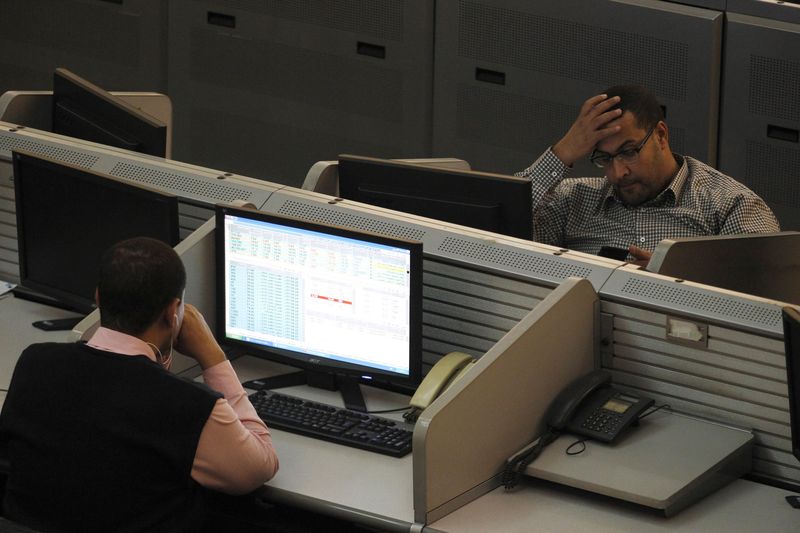Flagship Pioneering, the U.S. biotech venture capital firm renowned for investing in Covid-19 vaccine maker Moderna, is deepening its ties with Samsung to push the boundaries of medical innovation.
Building on their initial collaboration announcement earlier this year, Flagship plans to conduct global clinical trials for new drugs at Samsung-affiliated hospitals and to leap forward in next-generation pharmaceutical production at Samsung Biologics’ facilities in Songdo, Incheon.
The two companies had announced a collaboration aimed at fostering cutting-edge biopharmaceutical innovation to transform healthcare through groundbreaking advancements in translational science and medicine in January.
Through this collaboration, Samsung and Flagship-founded companies aimed to work together by leveraging Samsung’s leading technologies and capabilities to accelerate first and best-in-class therapies.
This partnership marked a significant step as Flagship looks to expand its innovative footprint in the Asia-Pacific region, with the opening of its new Singapore office this June serving as a regional hub for its ambitious projects.
Against this backdrop, Korea Biomedical Review met with Flagship Pioneering Chair of Asia Pacific and Senior Advisor André Andonian during his recent visit to Seoul.
Andonian has over three decades of experience advising companies around the globe on a broad range of strategic, operational, and organizational topics, with a longstanding presence in the APAC region.
Andonian is Senior Partner Emeritus at McKinsey & Company, where he worked for 34 years, including as Senior Partner, Chairman of Japan, and Managing Partner of Korea.
Andonian stressed that the partnership between Flagship Pioneering and Samsung is not merely transactional but is deeply strategic, rooted in a longstanding relationship and a shared vision for the future of medicine.
“The collaboration with Samsung leverages our multi-year relationship, combining Flagship’s innovative company creation model with Samsung’s robust capabilities in data, artificial intelligence, and enabling technologies,” Andonian said. “Especially, we plan to use Samsung’s extensive hospital network, which will play a critical role in clinical trials, thus accelerating the pace of medical innovation.”
This strategic alliance is set to transform not just the companies involved but also the broader healthcare ecosystem, particularly how hospitals operate and integrate cutting-edge scientific advancements.
Andonian pointed out the mutual benefits for the healthcare institutions involved.
“Flagship’s partnership will enable hospitals to observe and engage with the forefront of scientific innovation directly, enriching their understanding and application of what is technologically achievable,” he said. “Flagship’s interdisciplinary and integrated approach could also streamline hospital operations and foster connections with other key players in the healthcare sector.”
Flagship’s unique investment and innovation model
Andonian takes pride in outlining Flagship’s unique approach, which sets it apart from traditional venture capital firms.
“Unlike typical venture capital firms, Flagship intermediates involve large corporations with ample resources to invest in the biotechs we have founded,” he said.” This model not only drives innovation but also ensures a sustainable and robust pipeline of new biotechnologies.”
Flagship’s portfolio includes high-profile companies like Moderna and neurodegenerative disease company Denali Therapeutics, illustrating the successful application of its methodology.
“Each year, Flagship launches about six biotechs, having founded over 100 companies to date, which over the past 24 years have accumulated a total corporate value of approximately $70 billion,” he said. “Flagship itself has invested approximately $6.6 billion, with external fundraising amounting to about $28 billion.”
Andonian stressed that companies such as Moderna, Denali Therapeutics, Seres Therapeutics, KSQ Therapeutics, Generate:Biomedicines, and Cellarity are Flagship-funded firms.
“Flagship utilizes four types of collaboration models in partnering with others — Medicine, Platform, Disease, and Company-creation. These involve collaborations for single drug development, platform development, targeting specific diseases, and joint ventures, respectively,” he said. “Currently, Takeda and Flagship’s KSQ are developing a single drug, with Takeda providing research funding and KSQ conducting the research. Amgen and Generate:Biomedicines are collaborating on a platform, while Novo Nordisk, Cellarity, and Omega Therapeutics are jointly researching diseases.”
The joint venture model allows for leveraging all knowledge within the Flagship ecosystem, with companies like Thermo Fisher and Samsung involved, the Asia-Pacific Chair noted.
Expansion and collaboration in Korea
Looking ahead, Flagship is not just stopping at Samsung. The firm is actively seeking to integrate its ecosystem with Korea’s dynamic sectors, ranging from academia to clinical trials.
“We are having promising conversations with Korea Advanced Institute of Science and Technology (KAIST) and other universities, and exploring clinical trial opportunities with major hospital groups, such as Seoul National University Hospital (SNUH),” Andonian revealed. “We are keen to connect our ecosystem with Korean academia for exploration and reverse translation, starting from ‘what if’ statements that push scientific boundaries.”
Also, the potential expansion includes other sectors like agriculture, where Flagship’s innovative technologies can contribute significantly to sustainability and food security, he added.
With Flagship’s Asia-Pacific hub currently in Singapore, Flagship sees significant potential in expanding its presence across the region.
According to Andonian, the company’s initial focus will be in Singapore, Korea, and Japan.
Andonian discussed the strategic importance of Asia by stating, “With 60 percent of the world’s population and major economic growth, Asia is crucial.”
The company aims to develop drugs that consider the genotypes and phenotypes prevalent here, which is vital for global impact, he added.
The Asia Chair also said the company plans to open an office in Korea soon.
“We basically are very keen to bring our proven track record of creating companies and the ecosystem that we have created to Korea and to connect it with the Korean ecosystem,” he said.
When asked why the company had not chosen China as its initial interest, Andonian explained that the decision to initially exclude China from this expansion plan was due to current geopolitical tensions.
Looking towards the future, Andonian articulates Flagship’s ambitious plans for Korea.
“In the next decade, we aim to establish a presence in Korea akin to our base in Kendall Square (in Boston),” he said. “This involves not just setting up operations but also creating a hub of innovation that resonates with Flagship’s global standards of excellence.”



